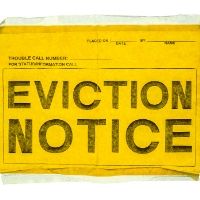As the COVID-19 pandemic has shaken the nation in the past few weeks, state and local governments have responded to the threat of mass evictions in varying ways. Unfortunately, outside of HUD housing, there is currently no nationwide rental housing guidance on how to handle the financial fallout from renters unable to pay rent due to a loss of income during shelter-in-place orders or the dip in the economy. While some areas have closed their local courts and suspended eviction proceedings, others have banned all eviction filings during this time. As you try to navigate these troubling times with your rental property(s), take a look at our eviction moratorium guidance.
At present, eviction moratoriums in place across the U.S. fall into one of the four categories:

- Eviction proceedings are suspended or the municipal’s sheriff’s office are not executing evictions or foreclosures
- The order bans all evictions
- The order only bans evictions related to nonpayment of rent
- The order only bans evictions related to nonpayment of rent due to COVID-19
Generally, orders barring evictions that caused “a loss of income caused by COVID-19” (these are seen in California, Oregon, and a few other states) can meet any of the following to qualify:
- The renter or a household member was sick with COVID-19
- The renter was laid off, had reduced hours, or experienced another income reduction due to COVID-19
- The renter complied with a recommendation from a government agency to stay at home, self-quarantine, or practice social distancing
- The renter had to miss work to care for a household member sick with COVID-19 or a home-bound school-aged child

Be aware that areas with orders in effect that follow categories 2 through 4 most likely ban late fees as well.
While most moratoriums in place strictly follow one of the four categories above, some municipalities have additional restrictions in place. For example, in Multnomah County, Oregon (Portland) once the state of emergency is over, renters behind on payments due to a loss of income related to COVID-19 will have a six-month grace period to pay back past due rent. Although most eviction orders affect rental housing, Seattle, Washington and other cities have also halted nonpayment of rent evictions for commercial properties with small businesses. As you review your eviction options within your local area, keep these exceptions in mind.
The end date of each eviction moratoriums varies. Some orders have a specific end date (like 30 or 60 days) while others follow along that municipality’s state of emergency – nether the less, these temporary end dates can and likely will be extended.
Be sure to subscribe for COVID-19 housing resources. We will continue to update this list as the weeks go by.







